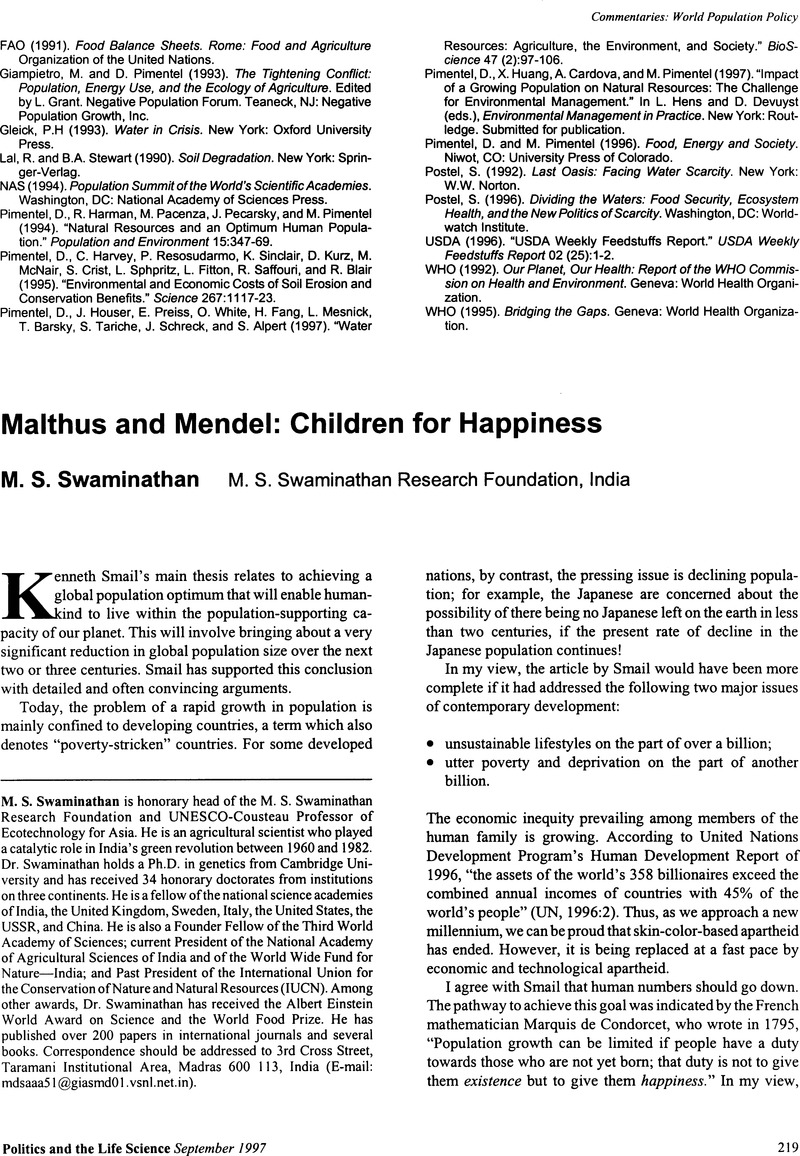No CrossRef data available.
Article contents
Malthus and Mendel: Children for Happiness
Published online by Cambridge University Press: 17 May 2016
Abstract
An abstract is not available for this content so a preview has been provided. Please use the Get access link above for information on how to access this content.

- Type
- Roundtable Commentaries
- Information
- Copyright
- Copyright © Association for Politics and the Life Sciences
References
Bose, A. (1996). India's Population Policy: Changing Paradigm. Delhi: B.R. Publishing.Google Scholar
Brown, L. (1995). Who Will Feed China? Wake-Up Call for a Small Planet. New York: W.W. Norton.Google Scholar
Condorcet, M.J.A.N. de (1795). Esquisse d'un Tableau Historique des Progres de l'Espirit Humain.Google Scholar
Expert Group on Population Policy (1995). Draft National Population Policy Statement. Report submitted to the Ministry of Health and Family Welfare, Government of India, New Delhi on May 21.Google Scholar
Malthus, T.R. (1798;1892). Essay on the Principle of Population as It Affects the Future Improvement of Society. Harmondsworth, UK: Penguin.Google Scholar
United Nations Development Program (1996). Human Development Report. New York: Oxford University Press.Google Scholar


